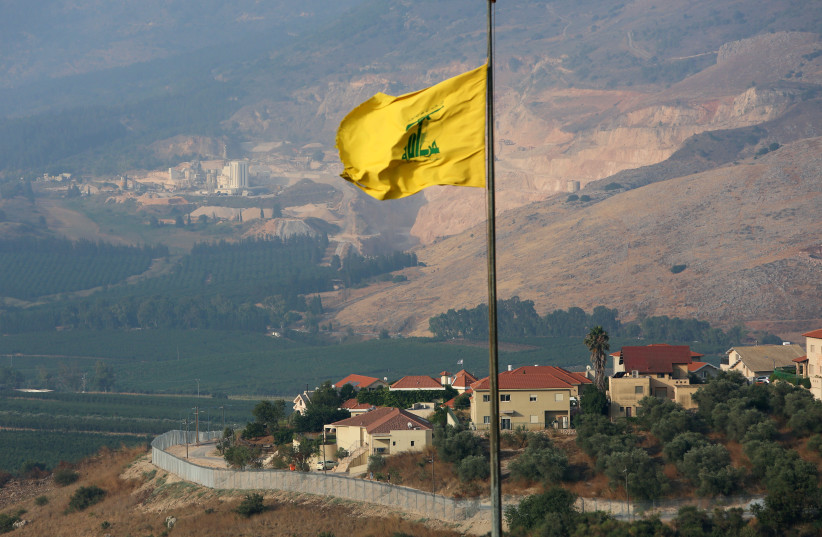Hezbollah looted Lebanon and it will cost $93b. to bail it out – analysis
The economy is in a tailspin, COVID-19 has taken away remittances the country needs, and Beirut is effectively defaulting on bonds, the study notes.
By SETH J. FRANTZMAN

Lebanon is in the midst of a financial crisis which may not be possible to solve. It has racked up staggering debts and could need $93 billion to bail it out, according to a new report by the Foundation for Defense of Democracies. The economy is in a tailspin, COVID-19 has taken away remittances the country needs, and Beirut is effectively defaulting on bonds, the study notes.
Written by lawyer and economics writer James Rickards, with a foreword by FDD’s chief executive, Mark Dubowitz, and senior vice-president for research Jonathan Schanzer, the new report presents a sobering picture of the challenges facing Lebanon. These are difficulties that are tied directly to the role of Hezbollah in looting the country and hijacking it. If a bailout doesn’t take into account extracting concessions from Hezbollah or the role it plays in the country this “risks transferring billions to a global terrorist organization and perpetuating one of the largest Ponzi schemes in history,” Schanzer and Dubowitz note.
What happened in Lebanon? Lebanese are generally credited with being successful and creative in diaspora businesses that span the globe, from Latin America to Africa. Lebanon used to be thought of as the Switzerland of the Middle East, or variously some kind of cross between Miami, southern France and the Gulf. But the country was badly harmed by civil war between 1976 and 1989, as well as a Syrian occupation. Then, with Syria’s withdrawal in 2005 after the assassination of prime minister Rafic Hariri, Hezbollah’s tentacles, backed by Iran, began to digest the country.
The FDD report notes that the government missed a $1.2 billion eurobond payment this spring. The International Monetary Fund and World Bank are slowly working to “assess the problem.” The Rickards report asserts that restructuring Lebanon’s mounting debt will be difficult. Bondholders won’t likely take a “haircut” or reduction on what they are owed because Lebanon “has no net hard currency reserves and no prospects of receiving any significant amount in the near term.” But Lebanon does have 286 metric tons of gold in its reserves. This actually makes the tiny country wealthy in one way. The gold alone is worth $16 billion.
The major problem in Lebanon appears to be the shadow economy controlled by Hezbollah. Referred to as “the system,” it appears that Hezbollah siphons off pieces of the economy, amounting to between $500 million and $1 billion a year. Hezbollah also increased its role in Lebanon in recent years with more clout in parliament and a stranglehold over the presidency. It also has a parallel terror army to the state, basically controls the country’s foreign policy and has an arsenal of 150,000 missiles, allegedly with new precision-guided munitions supplied by Iran.
The US doesn’t want to invest in this system and potentially fuel Iran’s economy or the Syrian regime. The US is trying to sanction all these Iranian allies and bailing out Lebanon without checks and balances or verifications that Hezbollah won’t benefit, is not palatable to the White House. Would Hezbollah cut ties with the Assad regime or Iran or reduce its stockpile of missiles? Unlikely, the report notes. Saudi Arabia, which has in the past been a guarantor of Lebanon under the 1989 accords that ended the Lebanese civil war, is also not interested in propping up Hezbollah, and has its own economic issues as well. In addition, a massive loan to Lebanon by the IMF would have to dwarf the $57 billion made available to Argentina in 2018. None of this looks likely.
However, if Lebanon falls deeper into crisis and default, it could destabilize the region, further empower Hezbollah and create an opening for China, Qatar or even other terrorist groups to infiltrate the country. This means Lebanon falling apart under the weight of its debts is a kind of catch-22. Funding the country’s bad habits fuels Hezbollah, not funding them might fuel Hezbollah as well.
Schanzer and Dubowitz argue in a related article at Newsweek that the US could offer a short-term bailout, “but only on the condition that Hezbollah agrees to remove its arsenal of precision-guided missiles from the country.” That’s a short-term solution. Hezbollah and its system will continue to try to digest Lebanon. Beirut appears more and more like a shell company for an international terrorist, drug trafficking and money laundering organization in the form of Hezbollah, which has hollowed out the country. The latest report provides a stark reminder of what has happened.
Content retrieved from: https://www.jpost.com/middle-east/hezbollah-looted-lebanon-and-it-will-cost-93b-to-bail-it-out-analysis-637463.